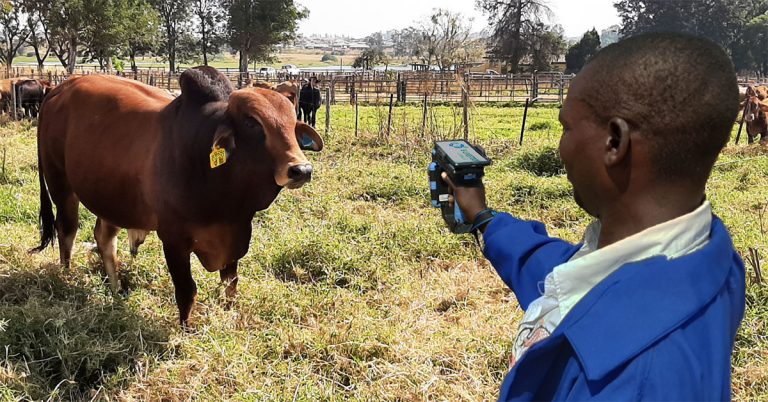
Photo: E-Livestock Global
A livestock traceability system in Zimbabwe is crucial to gain access to global markets and improve the national herd’s health status. This was according to the country’s deputy minister of agriculture Vangelis Haritotod.
Speaking at the launch of the E-Livestock Global and Mastercard Livestock Traceability System, he said Zimbabwe needed to be able to trade on international beef markets to ensure the long-term sustainability and profitability of its livestock industry.
“The lack of a traceability system has seen Zimbabwe being unable to export beef to lucrative markets in Europe and the Middle East in recent years, markedly reducing export earnings from beef, which are vital to the country’s economy,” he said.
Max Makuvise, founder and president of E-Livestock Global, said traceability was set to bring new hope to Zimbabwe’s agriculture sector after an outbreak of a tick-borne disease in 2018 that led to the death of 50 000 cattle.
According to him, the system would bring “end-to-end visibility to the cattle supply chain”.
“It is an irrefutable record that proves producers’ ownership, sales and exports. For buyers, it enables them to efficiently manage their operations and guarantee product quality for their customers,” Makuvise added.
He said each time an animal was dipped, vaccinated or received medical treatment, for example, the animal’s tag recorded the event onto the traceability system.
“Traceability allows producers to collateralise their herds and obtain financing from commercial banks, as well as insurance for their herds,” said Makuvise.













